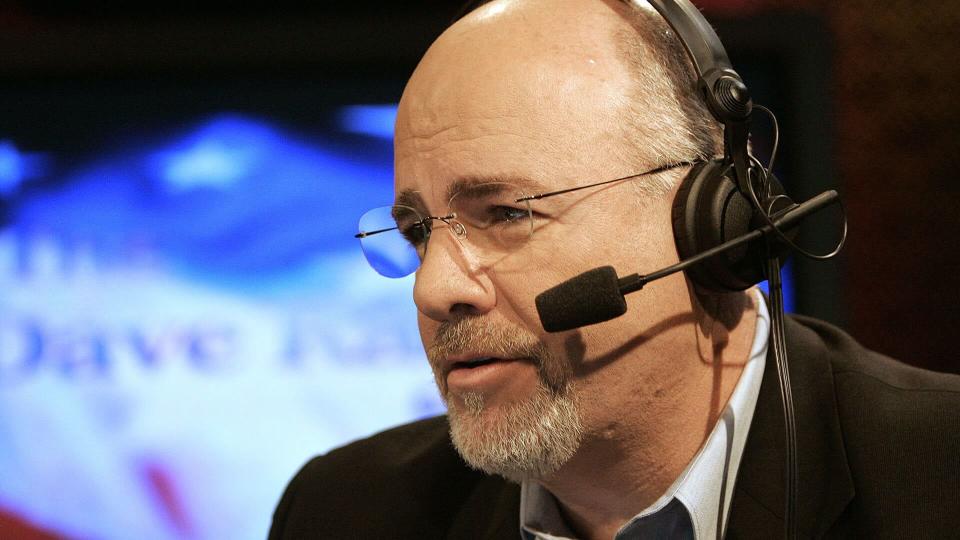John Csiszar
·4 min read
In a recent blog post, the Ramsey Solutions team, founded and headed by noted financial personality Dave Ramsey, addressed the issue of converting a traditional 401(k) to a Roth 401(k). While somewhat of a newcomer in the field, the Roth 401(k) option, according to the Plan Sponsor Council of America, is now offered by 86% of employers that provide a 401(k).
Dave Ramsey: 6 Biggest Retirement Myths You Should Stop Believing
Learn: The Simple, Effective Way To Fortify Your Retirement Mix
But what exactly is a Roth 401(k), what does it mean to convert to one, and is it the right choice for you? Read on to learn about your options and to see what Dave Ramsey has to say on the topic.
What Is a Roth 401(k)?
In most ways, a Roth 401(k) is the same as a traditional 401(k). Both allow for maximum employee contributions of $22,500 for 2023 — or $30,000 if you’re 50 or older — and you don’t have to declare the capital gains and interest you earn in the accounts when you file your tax return. The big difference is how contributions and withdrawals are taxed.
With a traditional 401(k), your contributions are removed from your paycheck before they are taxed. But when you take any withdrawals, those are fully taxable as ordinary income. With a Roth 401(k), however, the situation is reversed. You can’t make pre-tax contributions, meaning all the money you put into the account has already been taxed. But the reward comes when you make your withdrawals. Both contributions and earnings can be taken out completely tax-free, assuming you’re at least 59 ½ and you’ve had the account open for at least five years.
Downsizing for Retirement? Stay Away From These 7 Homes
What Are the Ramifications of Converting Into a Roth 401(k)?
If you convert a traditional 401(k) into a Roth 401(k), you are essentially moving money from a pre-tax account to an after-tax account. As contributions to a Roth 401(k) can only be made with after-tax money, you’ll have to pay tax on the entire balance of your traditional 401(k) at the time of conversion.
After that one-time tax hit, all future contributions and earnings to your Roth 401(k) can be withdrawn tax-free, assuming you make a qualified distribution as described above.
Is It Worth Converting Into a Roth 401(k)?
Whether or not conversion makes sense for you depends on your personal financial situation. While you’ll no doubt enjoy taking tax-free withdrawals after you retire, the upfront tax hit might not be an option for you.
Imagine you have a $200,000 traditional 401(k) balance and you’re in the 22% tax bracket. At the time of conversion, you’ll trigger a $44,000 tax bill. Even worse, adding that $200,000 to your income will almost certainly move you up at least one tax bracket. If you’re a single filer earning $80,000, for example, that additional $200,000 income will push you from the 22% tax bracket all the way up to the 35% bracket, making your bill even more onerous.
Ramsey’s Take
Dave Ramsey stresses that if you choose to go this route, it’s critical that you have the available cash to pay that tax bill. Although some opt to deduct it from the amount they transfer, that’s a big no-no for at least two reasons.
First, if you’re still under age 59 ½, you’ll owe a 10% early withdrawal penalty on top of your taxes.
But even more significantly, taking that $44,000-plus out of your retirement plan will cause major damage to your future account balance. If you leave $44,000 in your account for 20 years at a 10% annual return, it will grow to over $322,000. Withdrawing that money to pay your taxes will take a huge chunk out of your nest egg.
What Are the Steps To Convert Into a Roth 401(k)?
The prep work is the hard part in converting into a Roth 401(k), as the actual process is relatively straightforward.
Before you begin, you should first verify exactly how much money is available for the transfer. Most employer contributions, for example, take years to season before they become vested and available for transfer, so don’t assume that the balance you see on your account statement is the same as the amount you can convert.
Second, calculate the exact tax hit you’ll take if you make the conversion. Speaking with a tax advisor might be a good suggestion at this point.
Lastly, if you’re ready to go ahead with the conversion, speak to your company’s HR department. They will provide you with the necessary forms. After you complete them, the whole process shouldn’t generally take more than a few business days.
More From GOBankingRates
Grant Cardone: Passive Income Is the Key To Building Wealth -- Here's My No. 1 Tip
10 of the Most Valuable Pennies
3 Ways to Recession Proof Your Retirement
Experts Share the 6 Best Money Moves To Make Before Retiring
This article originally appeared on GOBankingRates.com: Dave Ramsey: Is It Worth Converting Your Traditional 401(k) Into a Roth 401(k)?
